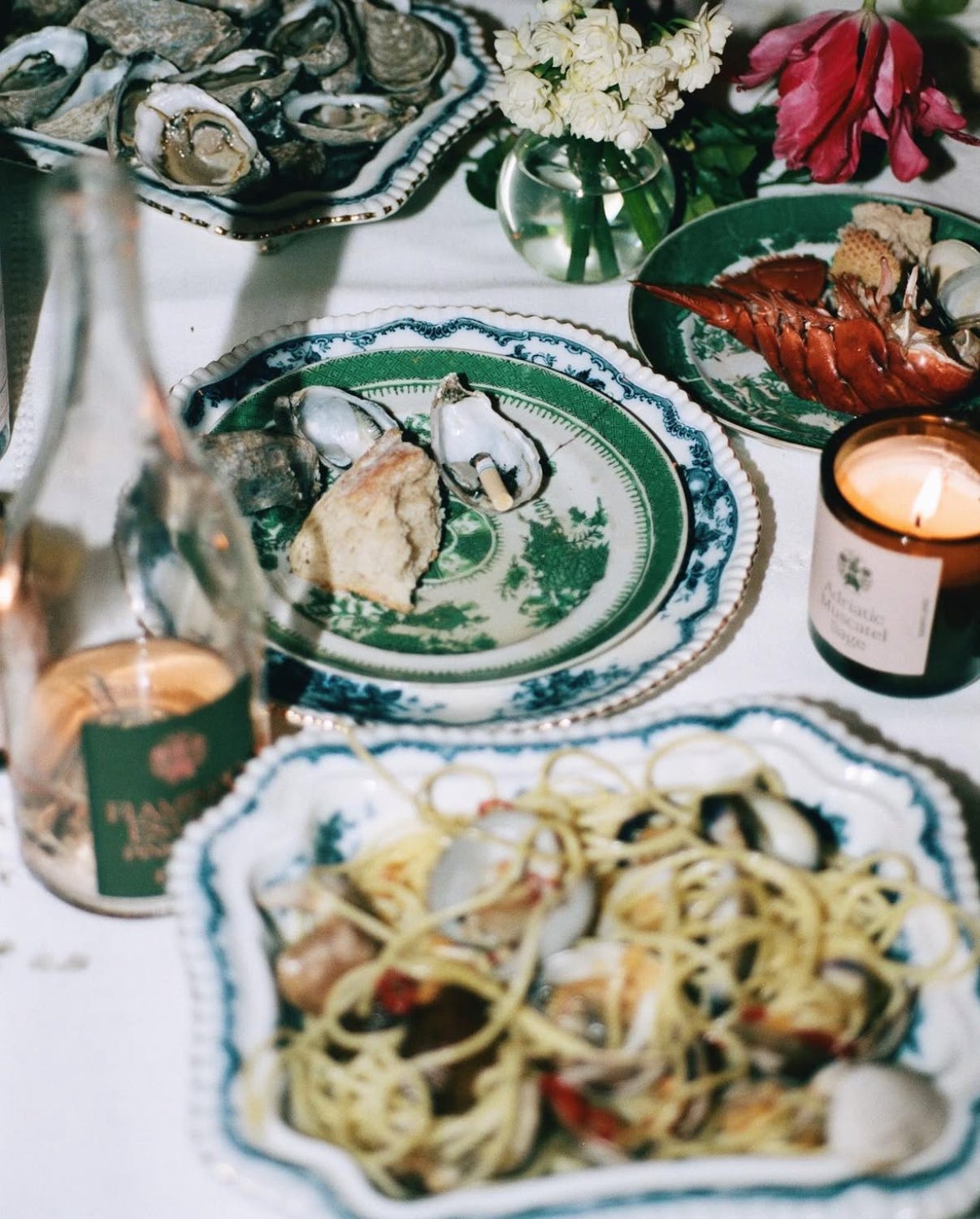
I was fourteen years old, setting the table for dinner at my grandfather’s house one evening, when I heard a muffled conversation coming from the kitchen. My mother stood at the stove, sautéing mushrooms in butter for his baked potato, moving with that quiet, attentive grace she carried through all things. From the next room, I heard his voice—thin, almost embarrassed by its own softness: “I just can’t believe it never happened for you, Lan. You would’ve made such a good wife.”
Sautéing mushrooms to a perfect crisp is a small thing. But to a man who rarely got what he wanted from the woman he’d spent his life embattled with, it was not at all insignificant. Even at that age, I registered in his voice the flicker of something tender—a glimpse into a kind of femininity he’d never lived beside, only witnessed in brief, aching moments with his daughter.
My grandmother—ironically named Joy—was not pathologically cruel from the outset. She was a woman shaped by lack. A middle child, moderately appealing, with little more than personality to speak of, she watched her father gamble away the family fortune during the Great Depression. This wound of early betrayal begat a lifelong performance of control.
And tongue-lashings.
Eventually, she clawed her way back to wealth, and by the time I was born, what was once lost, had become her weapon of choice.
My mother moved in the opposite direction entirely—as if her response to scarcity was to become a wellspring. An endless source of the kind of love that doesn’t announce itself, it simply appears—as new kitchen utensils and beautiful plates to make cooking and eating your horrendously restrictive healing diet a more interesting and enjoyable experience. As long-distance “reiki” sent from 2,500 miles away when you’re blinking in and out of consciousness from the pain of ruptured ovarian cysts that even pills can’t touch—and her energy, directed with intention, lifts the pain so suddenly and so thoroughly that you burst out laughing from the bliss that has replaced torture (swear to god, true story). It appears as seven antique diamond wedding rings that she took years to collect into a stack for your left middle finger and casually slipped them onto your hand at dinner one night. Because she knew there may never be a ring on the finger next to them—but she wanted you to feel loved anyway. It’s the million little things you never had to ask for, each one evidence of being deeply seen, deeply known.
And loved.
To hold now the juxtaposition between these two women in my mind plucks the same melancholic string in my heart as it did in my grandfather that day—that my mother was never loved by a man the way she deserved. Not even by him, whose allegiance ultimately fell to his cruel mistress: the money.
Some inherit land. Others inherit wrath, or silence. I inherited vision—that ephemeral quality that sees the hidden line between things and follows it. That feels a need before it forms into language. And makes a table beautiful even if no one’s coming. Because the outer world must acquiesce to the inner state. I see what wants to become, before it even knows itself, and I bring it there gently. It is a love language of gestures and symbols, of knowing how to place it, praise it, light it from a certain angle. It is the quiet instinct to beautify, and trace the invisible architecture of meaning with every motion.
Of the endowments that have been laid at my feet—objects, instincts, ways of moving through the world—it is this attunement that reveals itself again and again as the deepest current. Making love into ritual, not transaction. Turning absence into artifact. My mother taught me how to sit alone at the altar and still light every candle. To live in such a way is profound devotion to the Great Mother Void—the original womb, the silent intelligence behind all form.
She gave me beauty as a form of prophesy.
Now, the seven rings live on my finger like planets in alignment—each stone a small votive lit by a woman who once dreamed I’d orbit no one but myself. Each one gathered slowly, lovingly, over years with the understanding of something the world had not yet revealed to me—some truth it would never say aloud: that I might not be claimed, but I would not be overlooked. That there would be no bridegown, perhaps, but I’d still carry the relics of love, stacked like a monument—a glittering ward against forgetting the Mother that loves you. And that maybe she was a sigil for Her all along. And so, these ancient stones circle my finger as an echo—evidence not of belonging to someone, but of belonging to Love itself.
I am my mother’s daughter. I pour and I pour and I never run dry. I am the chalice that overflows and pours back into itself in the form of art, radiance, and offerings to the world. Being is my ceremony. And the altar is wherever I stand.
There was a time I held up every man like a mirror—pressed my face against the glass and searched for the father, the wound, or the lesson. I’ve traced that ache through the catacombs and rewritten the myths. I have swept the floor of the inner temple clean and I’ve walked myself home. There is nothing left to reflect but the love that I Am.
Perhaps the beloved was never meant to be housed in one body. Perhaps he passes through form like music through a room—felt more than seen, here for a verse, then gone—kissing me with a passing compliment from a stranger, with the song of a bird that wakes me at 4 a.m., screaming beauty into the unready day. Perhaps he appears as the man who offers only one night, but holds me with such tenderness that it sanctifies something eternal. Perhaps the love affair has always been with life itself.
I do not believe in marriage as paperwork. I believe in the marrow-deep recognition, the divine strike. A vow that is older than language. Ceremony orchestrated by nature herself. And if such a union never comes to pass in this life, I have not been denied. I am already wed—to the void, and to the ecstatic pulse of what is.
As Rumi wrote, “The moment I heard my first love story, I started looking for you... not knowing how blind that was.”
Every time I have given myself completely to the moment and was met there by the silence beneath the shape of things, I have lived inside the slow kiss between form and formlessness, engrossed in the love affair between the seen and the unseen.
So if no man ever arrives with vows on his tongue and forever in his hands, let this stand as the record:
There is no vacancy in me.
Every twinkle of light on water is direct communion.
This morning the sky cracked open and nothing fell out. I spent the day watching the smoke from my rose incense curl around itself and disappear—summoning these words from Nothing.
A bowl of raspberries and honey vanished into my mouth.
The priest came and went as the fork slipped between my lips.
There is no conclusion.
Only arrangement.
I tilt.
And the cosmos adjusts.

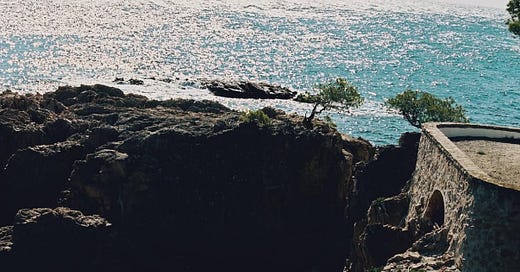


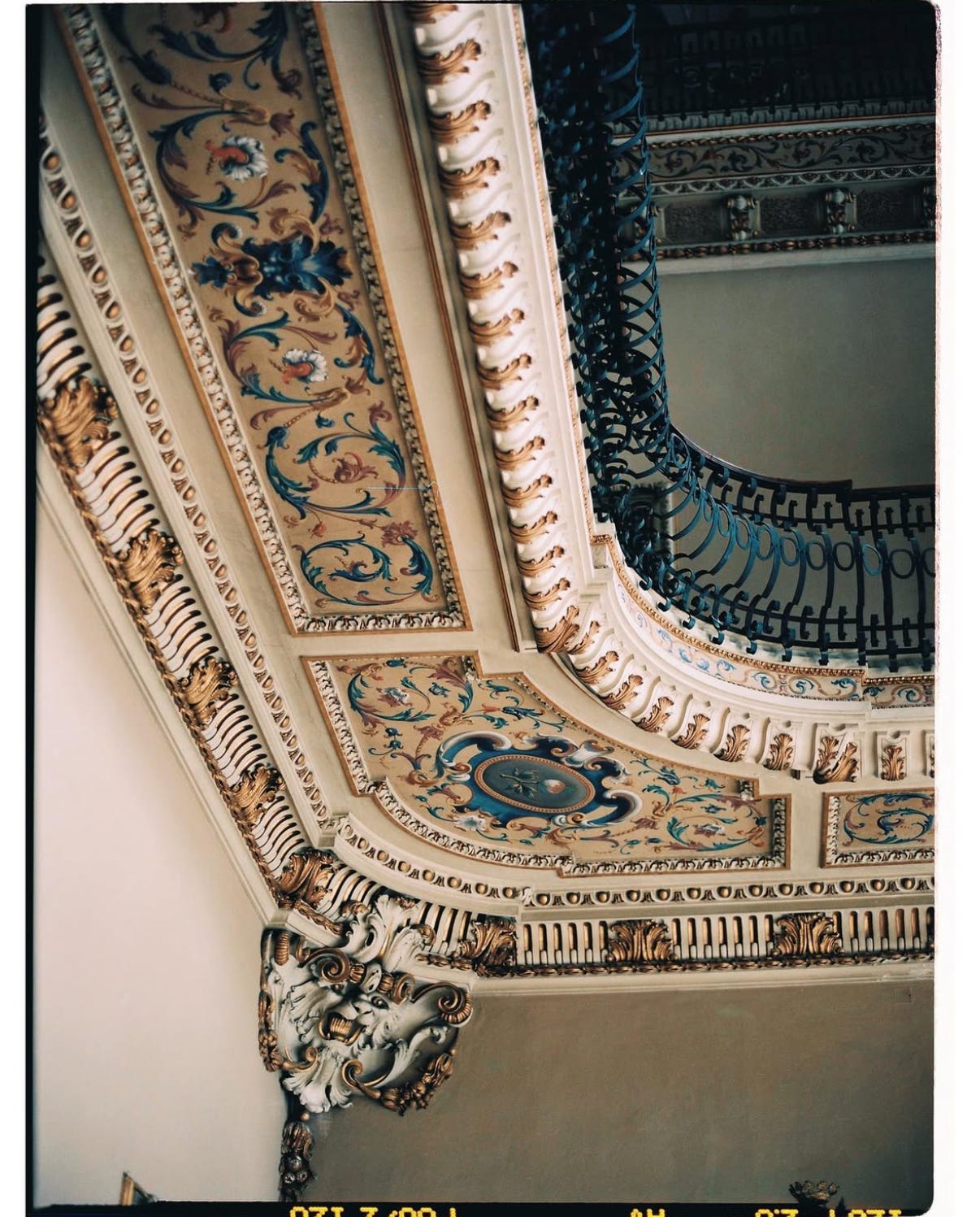
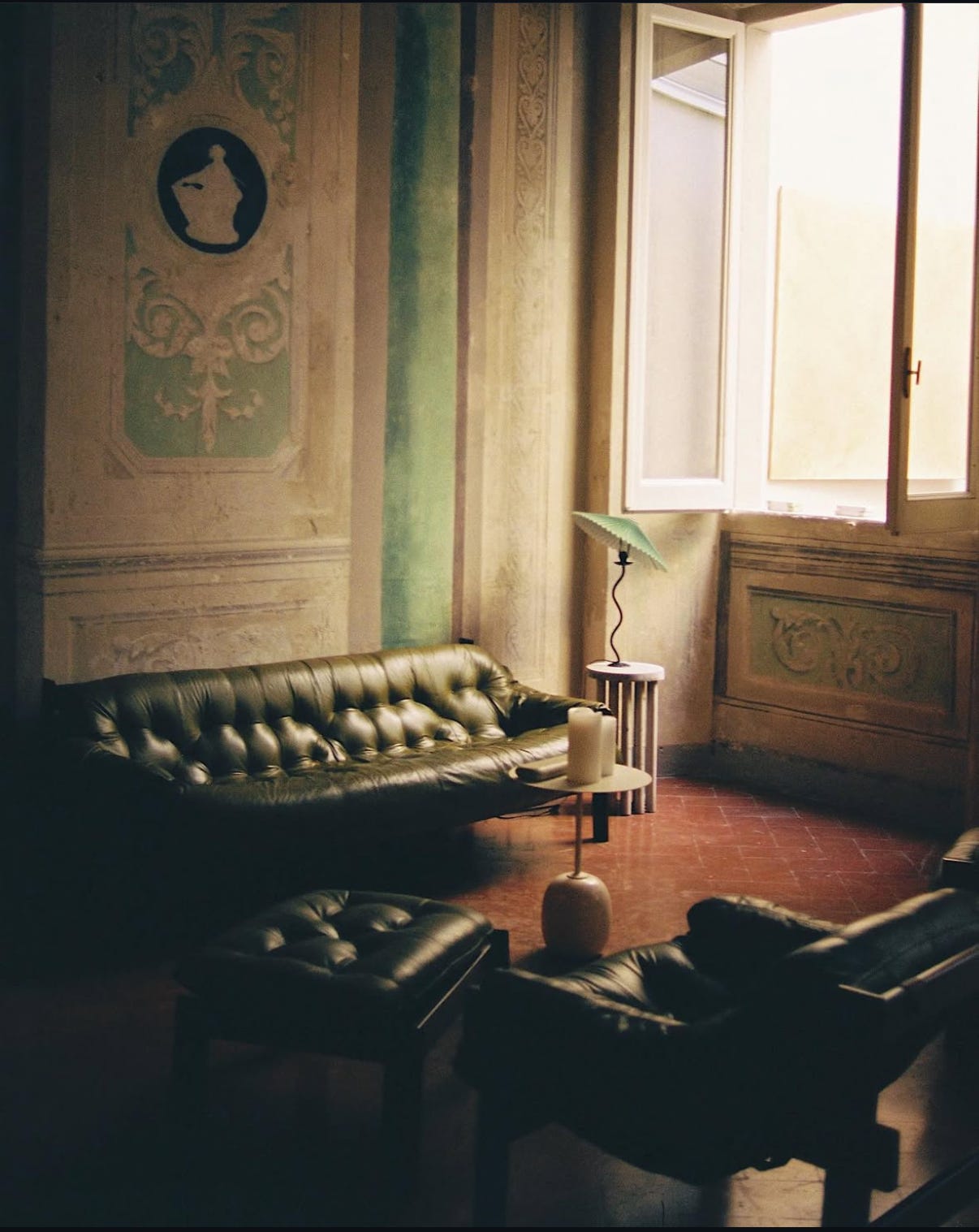
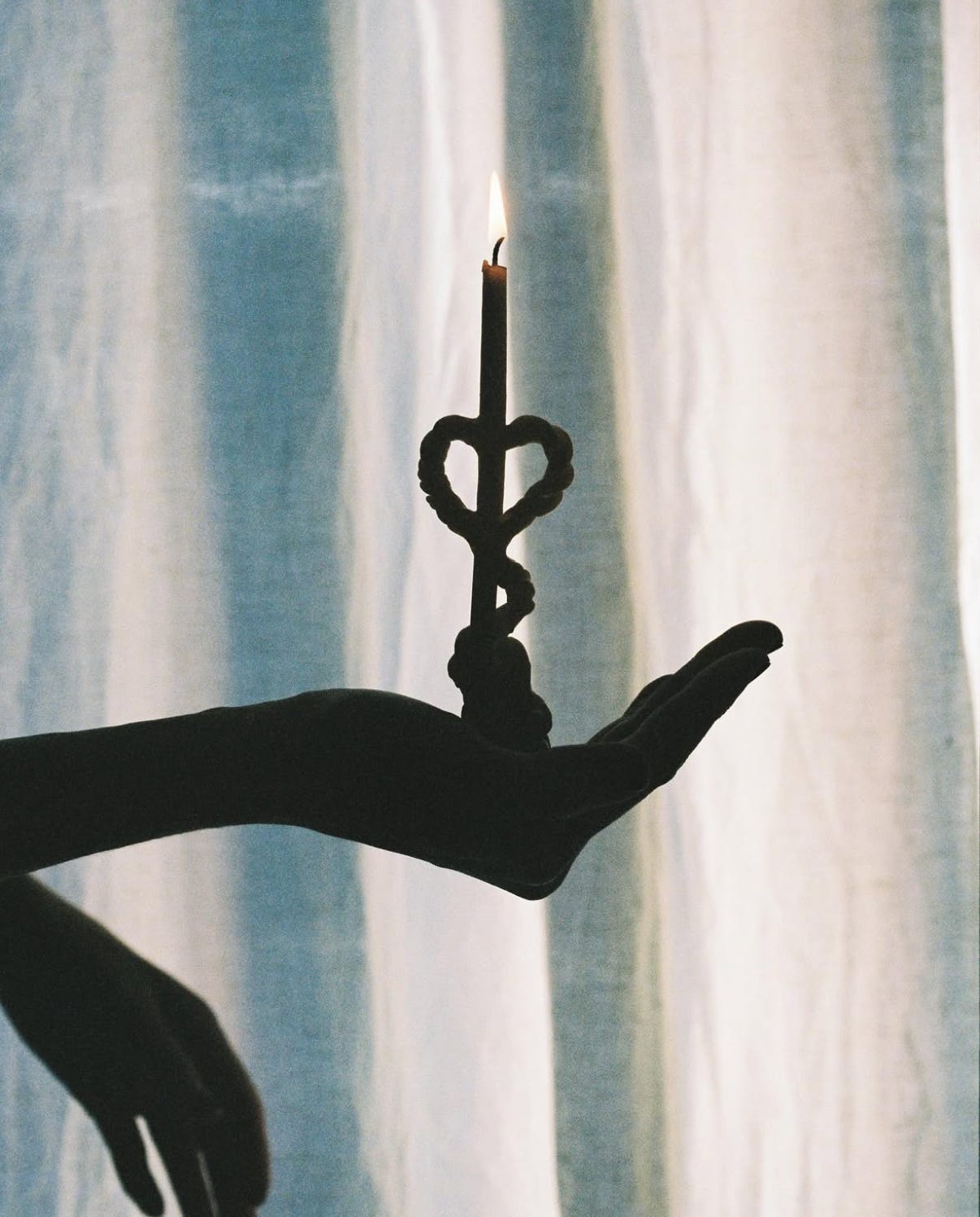
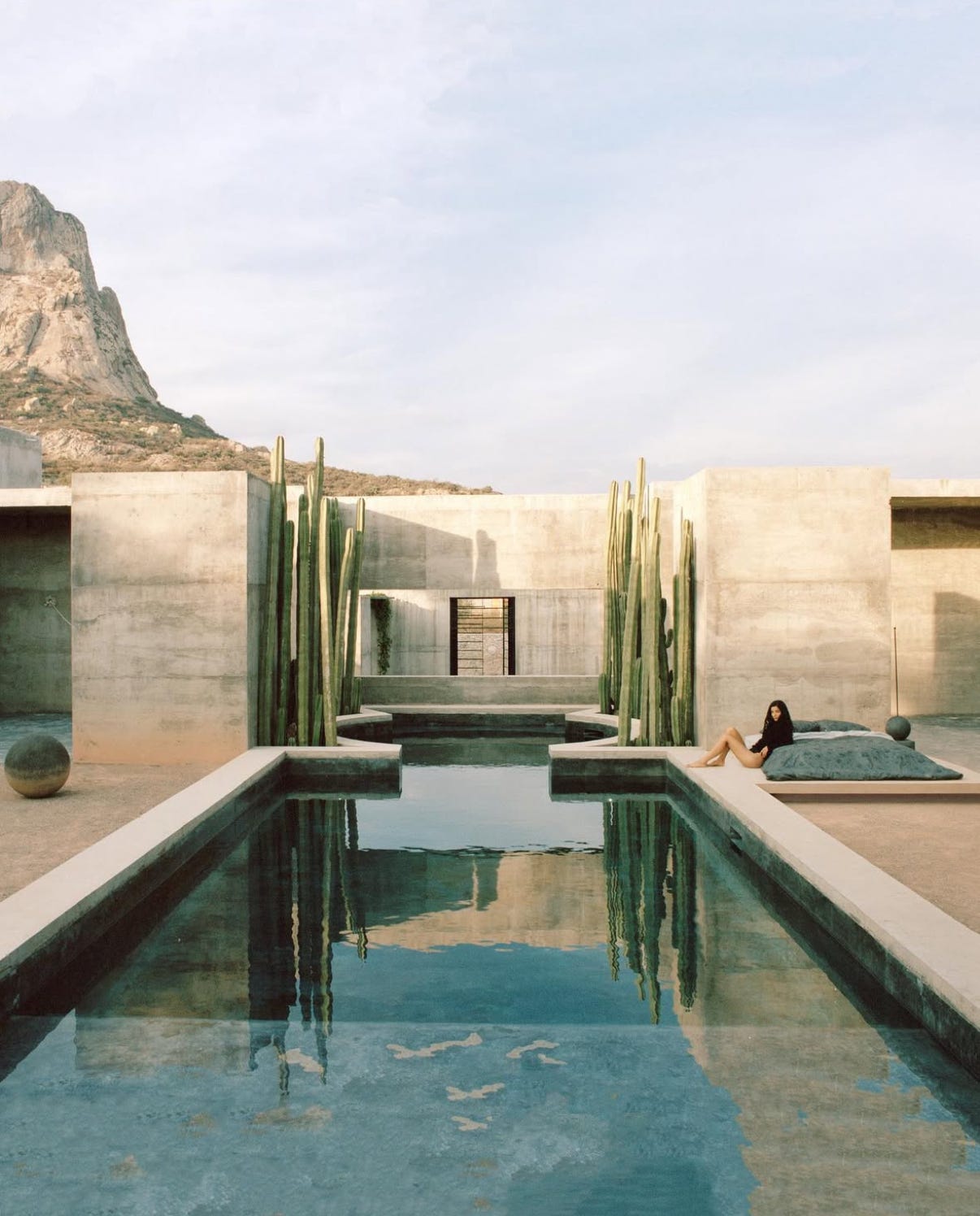
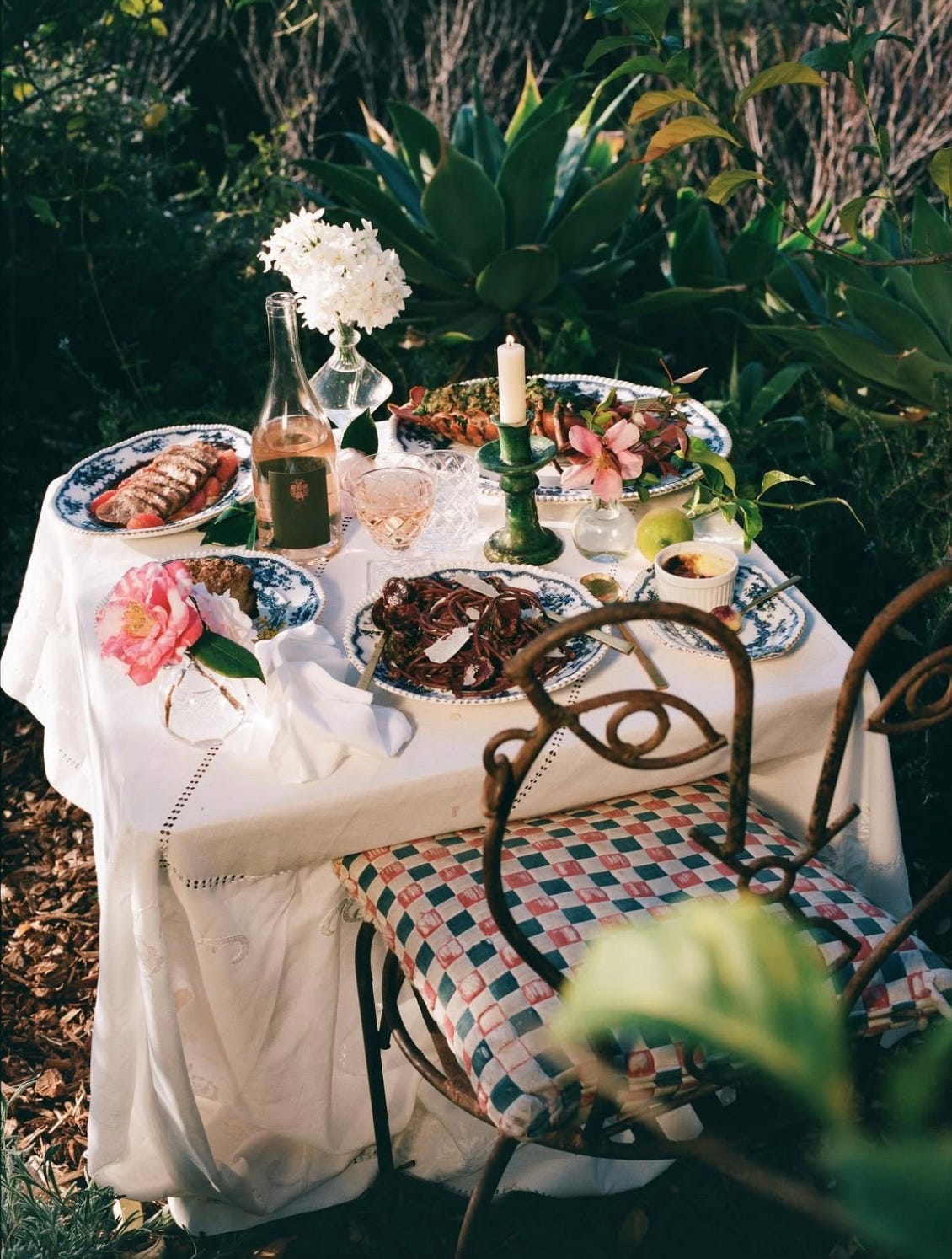

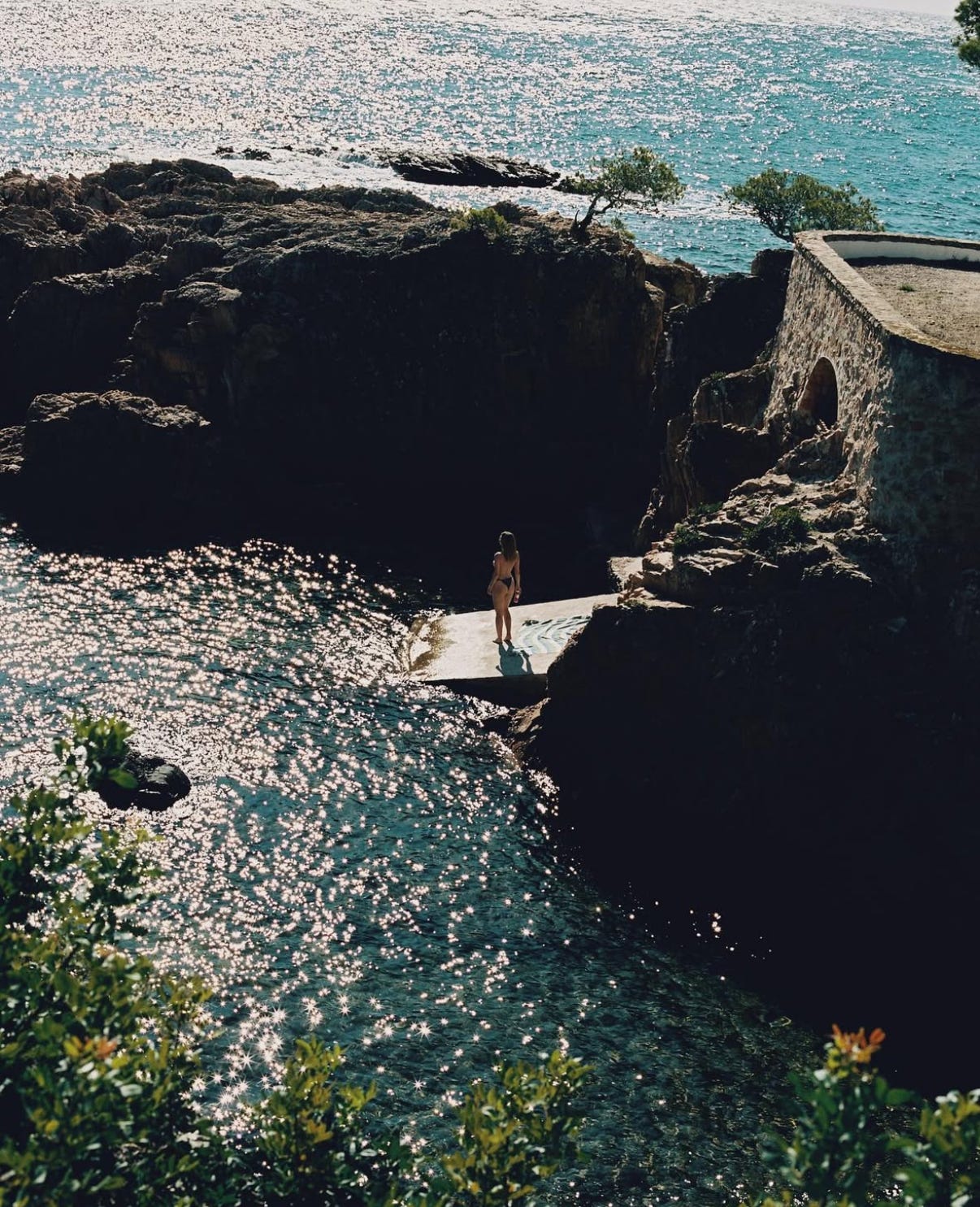

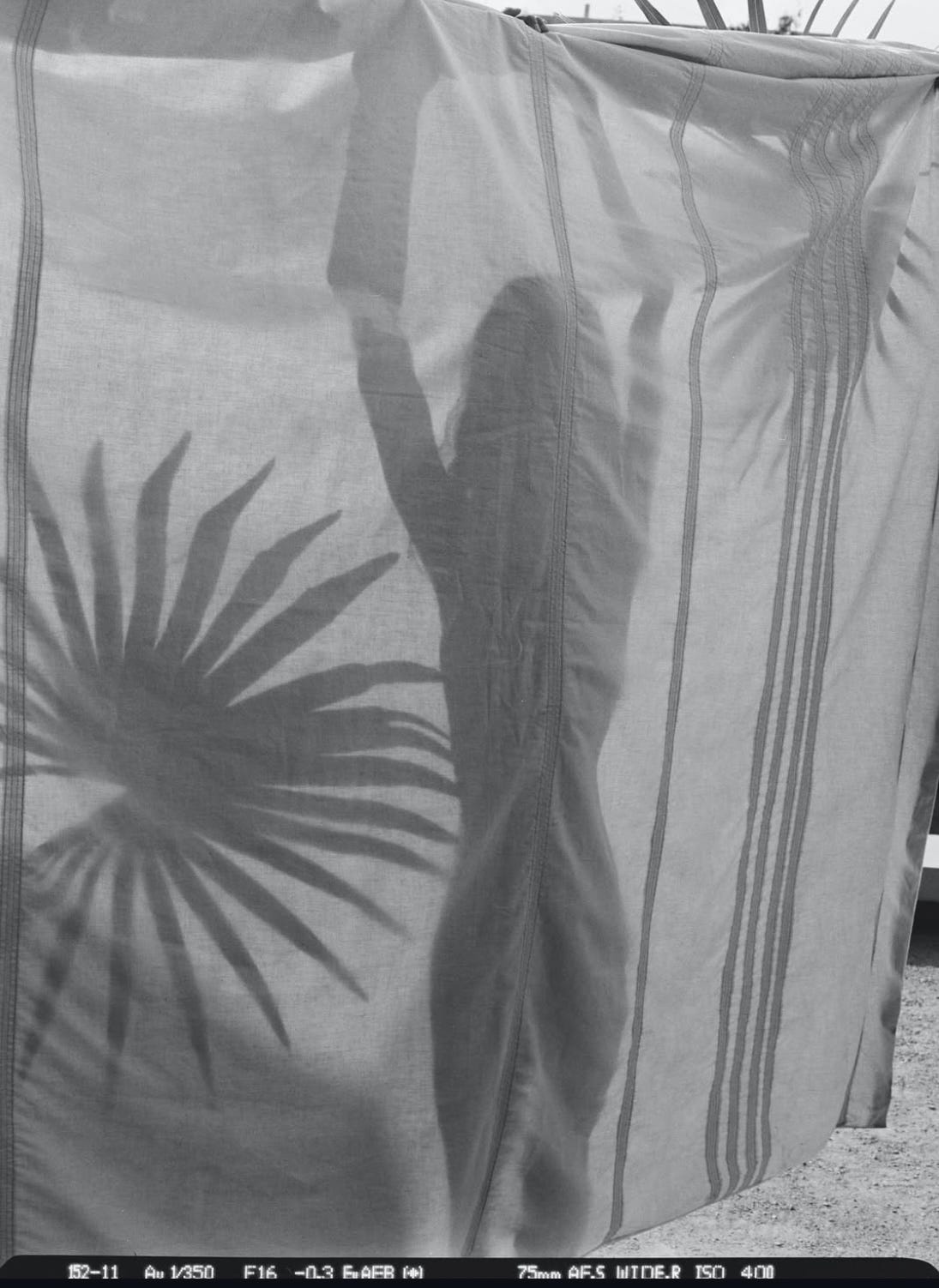
This is one of the most beautiful things I’ve ever read_ like all your work, it’s infused with a rare, transcendental beauty...Thank you Jazmine❤️, deeply.
Forever grateful there are people like your mother and you to further introduce this love and wisdom to those of us who lacked it <3